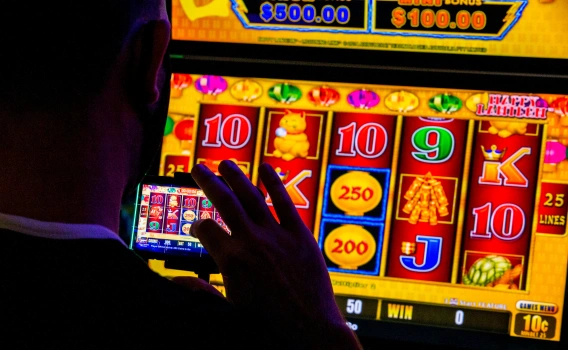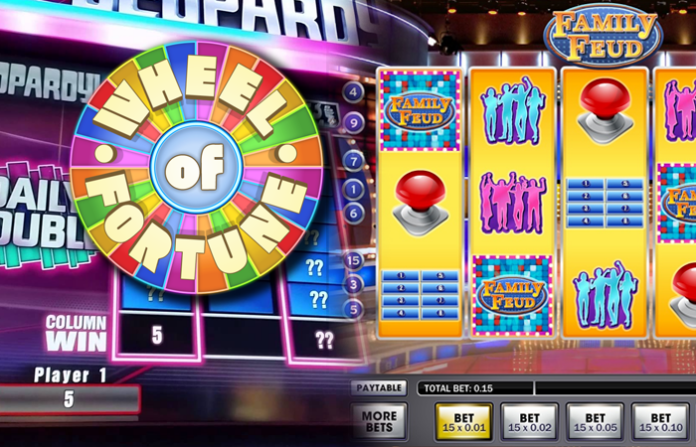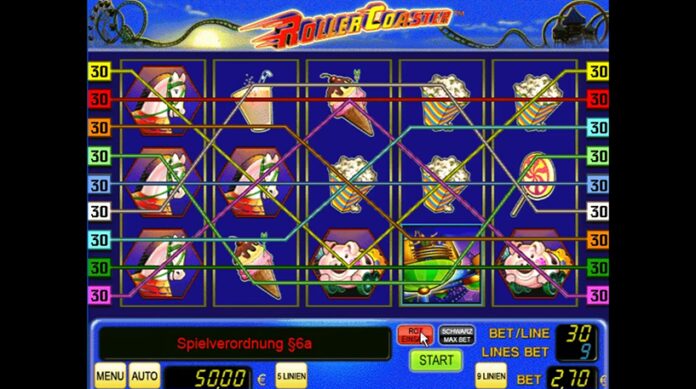With a market demand creating an expected growth of over 100 USD billion by 2028, the iGaming industry is ready, set and spinning to the wins. Consumption of this entertainment has been driven by the organic adoption of digital spending and the naturalization of Internet technology, especially when coupled with the convenience of smart devices.
The improved customer experiences by both casino and game developers, in conjunction with casino reward programs, have also piqued the interest of many gamblers. Through the years gaming developers have upped their games and continue to do so to capture the gamers’ imagination and time. This is why slots have joined the ranks of one of the many favoured pastime activities.
With slot machine gaming, there is a psychology which allows users to understand why these games are captivatingly addictive. Whether it be online or land-based, slot machines have a magnetism to them that always poses the question of why a slot game is chosen over another. Let’s explore some of the industry tools employed to divide and conquer.
The Value Of RTP

Any critical player will know that no matter how much they win, the house has already taken their fair share from your wagering. Slot machines, whether online or land-based, are the largest generators of income for the casino. One way creators make it attractive to play online slot
Games (such as the ones you can find here) is through RTP – return to player.
Simply put, RTP is the average calculation a slot machine or game is expected to generate in winnings for the players. This is represented by a percentage and the desired calculation of a slot machine RTP is typically at 95% and above. So, it is the assumption that for every $100 the player would win back the percentage of the RTP displayed in the game.
Though the prospect of winning based on the RTP looks attractive, this information is generally based on an average of 10,000 or 100, 000 games played. As slot machines generate random play outcomes, this means the average would have to be met before the game can meet its RTP percentage.
Themes And Genres

Slot machine games offer a wide range of themes and genres which have captivate and engage players for hours on end. Some of the more popular themes or genres include
- Ancient Egypt
The fascination of the pyramids, Cleopatra and more on all things Egyptian continues to inspire the imagination of software developers and slot enthusiasts alike.
- Sports
This genre provides the player with a platter from which to select. Slot machines provide games based on the most popular sporting games from soccer to wrestling, horse racing, and most sports in between.
- Space
The unchartered frontier, Astro-themed games provide the want to be an intergalactic time traveler and escape with every spin.
- Television show
Slot players can take a nostalgic spin as they play games which have been centered on popular television shows.
With many more themed slot games from which to make a selection, this makes slot machines all more attractive and engaging to players. This provides a comfortable yet engaging platform where players immerse themselves in gaming. This is just another way in which slots manage to ensure players come back.
Developed For The Player

As much as casinos like having players stay on their platforms, it’s the game developers that continually work at providing users with multiple engaging features. Traditional slots would have the spin feature and then it was either the player won or lost. If it was a win, the machine would flash and generate a noise to announce the winner.
Current slot machines provide multiple wins and losses through paylines. These are just multiple combinations the slot game generates, thus providing multiple probabilities to win prizes or bonuses. Paylines allow a player to think that they are winning, blurring the lines where losses are disguised as wins.
Researchers have examined the phenomenon referred to as the slot machine zone. According to findings, players enter a zone where they become oblivious to their surroundings while playing. The study looks into computerized slot machines and concluded that the combination of the lights, sounds, graphics, and the anticipation to win.
All these come together and the player is not able to see and focus on anything else either than the game before them. For online players, slots are easily accessible through multiple devices, using much of the same means to keep players engaged and playing.
Rollercoaster Spin

For a majority of players, engaging in gambling activity is a form of entertainment and escape from daily life stressors. So as not to feel guilty about engaging in this vice, there is bargaining where even though gambling could result in more loss than gain, it becomes almost like a price that they are willing to pay for the fun.
In psychology, this bargaining is referred to as cognitive dissonance. In a nutshell, we disassociate ourselves from the consequences which may potentially carry a negative result. So what could be the benefit? Dopamine. The hormone is released every time we experience something exciting and gratifying, leading to a euphoric state.
At an unconscious level, there is a loop that takes place between the player and the slot machine. For the player to gamble, they dissociate from the consequences, seeking fun and excitement, negating consequences.
The thrill from the prospective win releases dopamine which the player over time will seek repeatedly. For the player, this can only be achieved through playing slots. One can equate playing slots to the experience one has while riding a rollercoaster ride. This is one of the numerous hooks that make slot machines attractive to many casino players.
Conclusion
Slot machines account for between 65% and 80% of the money casinos generate. Thus it only stands to reason that there will be a lot of investing in ensuring players come back time and time again to play on their favorite slots.
Learning and understanding how casinos design and structure their services to keep the gambler playing is important. Once aware, the gambler can make a conscious decision that would steer away from addictive behaviors.









